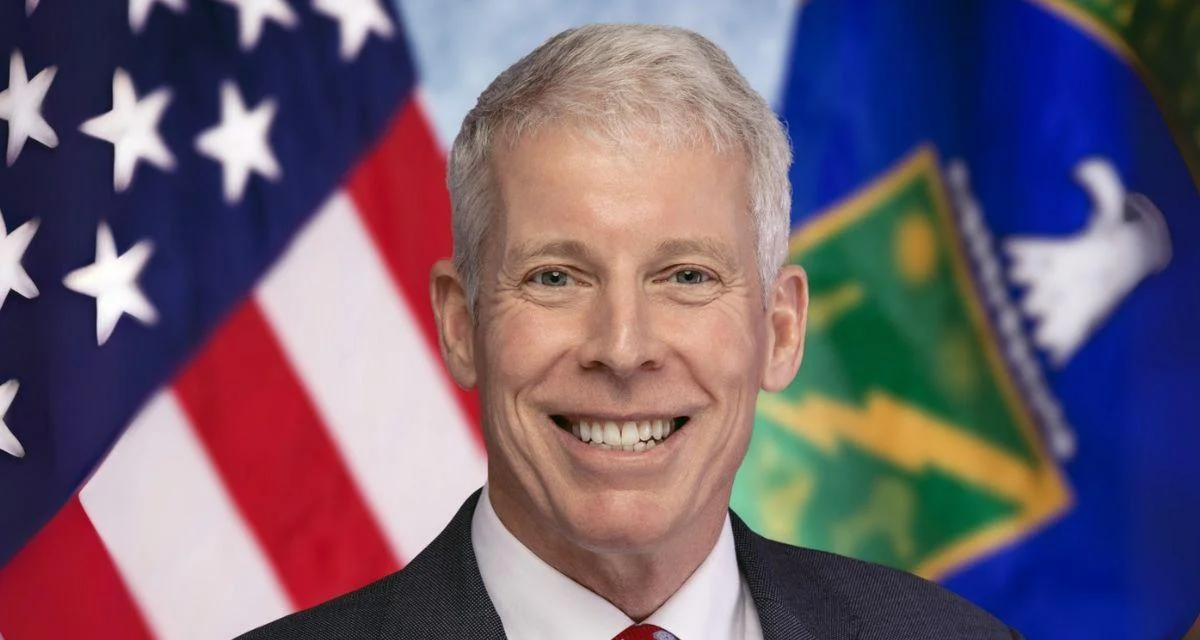At the 69th International Atomic Energy Agency (IAEA) General Conference in Vienna, U.S. Secretary of Energy Chris Wright delivered the United States’ national statement, emphasizing American leadership in nuclear energy and nonproliferation efforts.
Secretary Wright began by welcoming the Republic of Maldives as the newest IAEA member and highlighted the growing importance of reliable energy sources to support global development and emerging industries such as artificial intelligence. He noted that AI is becoming a highly energy-intensive sector, requiring substantial baseload power to sustain its growth.
Wright stated, "I am honored to represent the United States of America at the 69th IAEA General Conference. I want to thank Director General Grossi and the Secretariat for your leadership. The United States welcomes the Republic of Maldives as the newest member of the IAEA. As both a lifelong energy entrepreneur and now the U.S. Secretary of Energy, I am uniquely aware of the transformative power of energy, its ability to lift billions out of poverty, drive economic growth and expand opportunity across the globe."
He continued, "I am also acutely aware of the challenge our world faces today in meeting rising demand for affordable, reliable and secure energy – particularly the need for baseload electric power to drive rapid progress in Artificial Intelligence. AI is rapidly emerging as the next highly energy-intensive manufacturing industry. AI manufactures intelligence out of electricity. The nations that lead in this space will also lead transformative progress in technology, healthcare, national security and innovation across the board. The energy required to power this revolution is immense – and progress will be accelerated by rapidly unlocking and deploying commercial nuclear power."
The Secretary credited President Trump’s administration with advancing policies designed to modernize America’s nuclear sector through four executive orders issued earlier this year. These directives aim to streamline regulation, accelerate reactor testing processes, deploy reactors for national security purposes, and revitalize domestic nuclear manufacturing capabilities.
"Earlier this year," Wright said, "President Trump issued four Executive Orders aimed at reinvigorating America’s nuclear energy industry by modernizing regulation, streamlining reactor testing, deploying reactors for national security, and reinvigorating the nuclear industrial base. As part of these Executive Orders, we established an expedited pathway to approve advanced reactors, set standards to evaluate new construction licenses within 18 months, and designated AI data centers as critical defense facilities to enable advanced nuclear reactor deployments. These efforts support President Trump’s goal of adding 300 gigawatts of new nuclear capacity in the United States by 2050."
Wright underscored U.S. commitment to supporting Small Modular Reactors (SMRs), citing their safety features and potential benefits for partner countries seeking affordable baseload electricity or process heat for manufacturing.
"The United States is committed to supporting the deployment of Small Modular Reactors," he said. "With their streamlined design and modular manufacture, enhanced safety features, and more accessible financing, SMRs provide a great opportunity for our partner nations to deploy affordable baseload power to the grid and increase supply of process heat that is central to manufacturing." He added that through its Department of Energy programs, "the United States stands ready to engage at every stage" with international partners on civilian nuclear projects.
On international cooperation frameworks known as Peaceful Nuclear Cooperation Agreements (123 Agreements), Wright reported recent successes: "Abroad," he said,"we are also working with our allies to advance new Peaceful Nuclear Cooperation Agreements... Since last General Conference,the United States has successfully brought into force new 123 Agreements with Thailandand Singapore."
Additionally,Wright referenced ongoing negotiations on intergovernmental agreements(IGAs)for civil nuclear collaboration,inaugurated during President Trump’s first term with Poland.He stated,"the Departmentof Energy now has four such IGAs inplaceandis pursuing moreas partofthe president’s Executive Orders."
Throughout his remarks,Wright stressed that accelerating global deploymentofnuclearenergy would not come atthe expenseofsafetyor nonproliferation:"We will take no shortcuts on safety.We will not accept anything less than fully safe nucleardesignand operation.America’s commitmentto peacefulnuclearpowerisunwavering–andthiscommitmentisunderpinnedbyanequallyrobustcommitmenttononproliferation."
Addressing proliferation risks,Wright singled out Iranas posing“the most serious threat totheinternationalnonproliferationregime” due topersistent lackoftransparencywiththeIAEAand ongoingescalations.Hestated,“Iran’snuclearweaponspathway,includin gallenrichmentandreprocessingcapabilities,mustbecompletelydismantled.IranmustfullycooperatewiththeIAEA ,abidebyitssafeguardsobligations,andprovidetheIAEAw ithunhinderedaccesstoallsitesofconcern.”
Wright concluded by affirming strong U.S.supportfortheIAEA'sindependenceandsafeguardsmission,citingappreciationfortheAgency'sworktopromotenuclearsafetyinUkraineandworldwide.“America’snuclearleadershiprequiresthestrongestpossiblesafetyandsecurityfoundation,andwecommendtheIAEAforitsassistanceinadvancingtheseprioritiesworldwide.”
The statement reflects continued U.S.engagementwithglobalpartnersonthepeacefuluseofnucleartechnologywhilemaintainingemphasisonnonproliferation,safety,andsecurity.

